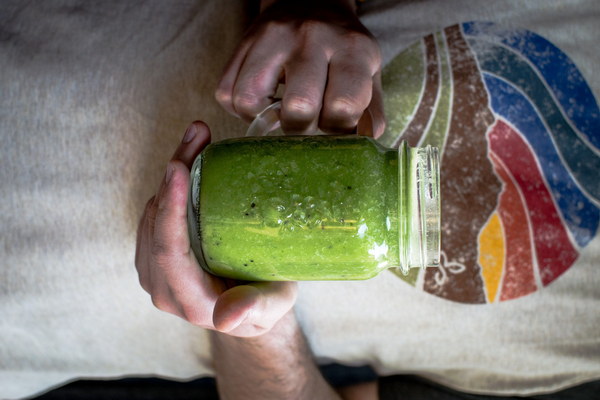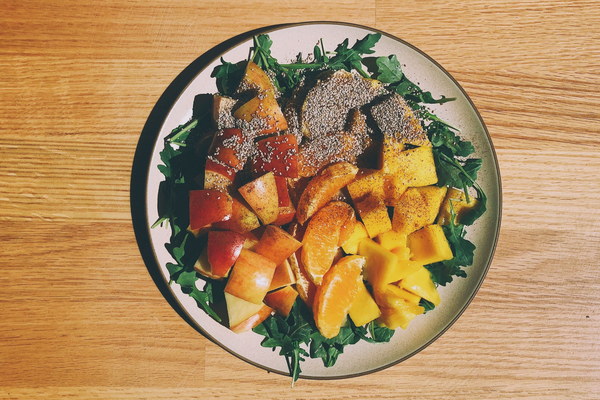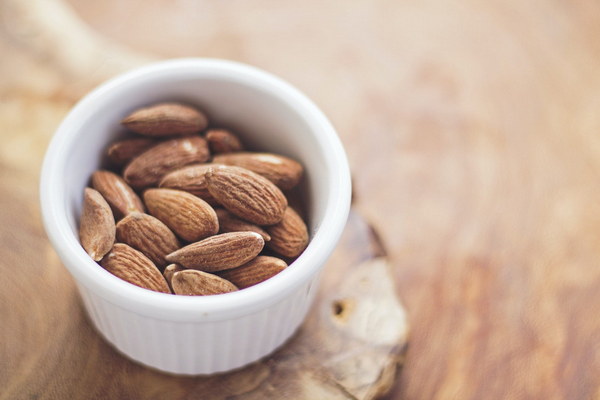Improving Sleep Quality A Holistic Approach with Dietary Tips
Introduction:
Sleep quality is crucial for maintaining overall health and well-being. However, many individuals struggle with poor sleep quality, which can be attributed to various factors such as stress, poor lifestyle habits, and dietary choices. In this article, we will explore some effective dietary tips to improve sleep quality and promote a more restful night's sleep.
1. Include Magnesium-Rich Foods:
Magnesium is a mineral that plays a vital role in regulating sleep patterns. Consuming magnesium-rich foods can help improve sleep quality. Some excellent sources of magnesium include almonds, cashews, flaxseeds, black beans, and spinach. Aim to incorporate these foods into your daily diet to enhance your sleep.
2. Stay Hydrated:
Drinking enough water throughout the day is essential for maintaining overall health, including sleep quality. Ensure that you stay hydrated by drinking water or herbal teas during the day. However, avoid drinking excessive fluids before bedtime, as it may lead to frequent awakenings due to the need to use the bathroom.

3. Limit Caffeine and Alcohol:
Caffeine and alcohol can significantly disrupt sleep patterns. To improve sleep quality, it is advisable to limit your intake of these substances, especially in the hours leading up to bedtime. Opt for decaffeinated beverages and consider alternatives like milk or herbal teas.
4. Incorporate Tryptophan-Rich Foods:
Tryptophan is an amino acid that the body converts into serotonin, a neurotransmitter that promotes relaxation and sleep. Foods rich in tryptophan include turkey, chicken, fish, milk, cheese, and eggs. Adding these foods to your dinner can help improve sleep quality.
5. Include Melatonin-Rich Foods:
Melatonin is a hormone that regulates the sleep-wake cycle. Consuming foods rich in melatonin can help promote better sleep. Some natural sources of melatonin include cherries, bananas, almonds, and oatmeal. Including these foods in your diet can support a more restful night's sleep.
6. Avoid Large Meals Before Bed:
Eating a heavy meal before bedtime can lead to discomfort and indigestion, which may disrupt sleep. Try to finish your dinner at least two to three hours before going to bed. Opt for lighter, healthier snacks if you feel hungry before bedtime.
7. Consume Foods High in B Vitamins:
B vitamins, particularly B6, B12, and folic acid, play a crucial role in the production of neurotransmitters that regulate sleep. Foods rich in B vitamins include avocados, bananas, lentils, nuts, and seeds. Including these foods in your diet can help improve sleep quality.
8. Stay Active During the Day:
Regular physical activity during the day can promote better sleep at night. Engage in moderate exercise, such as walking, swimming, or cycling, for at least 30 minutes a day. However, avoid vigorous exercise close to bedtime, as it may have the opposite effect.
Conclusion:
Improving sleep quality is essential for maintaining overall health and well-being. By incorporating the dietary tips mentioned in this article, you can promote a more restful night's sleep. Remember to make gradual changes and consult with a healthcare professional if you have any underlying health conditions or concerns.









